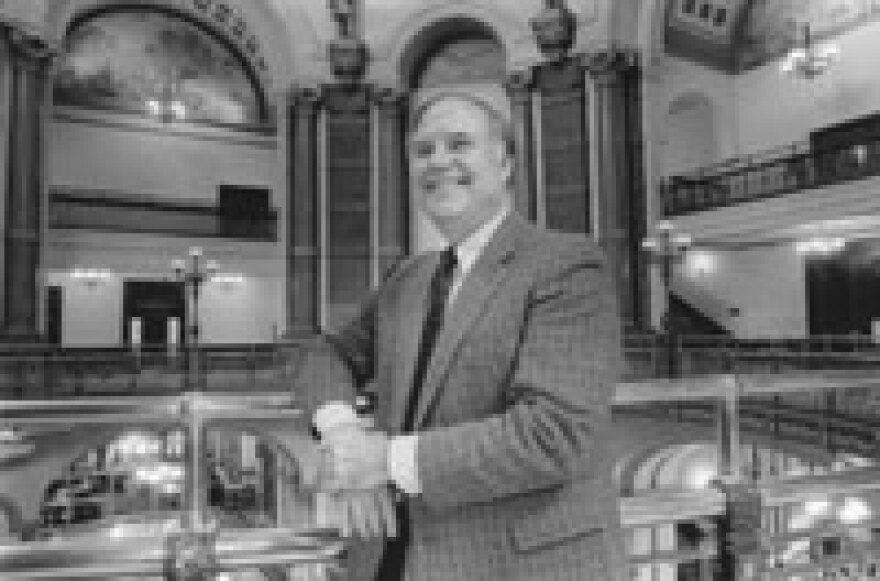When Illinois voters approved the call for a Constitutional Convention 35 years ago this month, the main selling point was the need to revamp the state’s century-old, horse-and-buggy charter to meet space-age needs.
Proponents of constitutional revision touted such benefits as a revenue article flexible enough to allow targeted tax breaks, expanded authority for cities to handle their own affairs and restrictions on state borrowing more attuned to contemp-orary financial practices.
One might reasonably assume, however, that few of the 2,979,977 citizens who voted for Con-Con were motivated by a desire to transform the governor into a super-legislator. Yet a little-heralded provision that allows governors to rewrite bills after they’ve cleared the legislature has proven to be among the more contentious innovations of the 1970 Constitution.
Under the amendatory veto power, a governor may return a bill with specific recommendations for change, which lawmakers can accept by majority votes in each chamber or can over- ride with three-fifths majorities. If legislators do neither, the bill is dead.
The latest skirmishes involving the chief executive’s amendatory veto power will get under way later this month, when the legislature returns to Springfield for its fall session. The state’s still-shaky fiscal condition is likely to be uppermost in everyone’s minds, but Gov. Rod Blagojevich’s draftsmanship won’t be far behind. While the governor used his amen- datory veto power on 45 bills, his proposed rewrites of two reform measures — one dealing with ethics, the other with capital punishment — have drawn particular scrutiny.
Saying he wanted to add teeth to the ethics package, Blagojevich called for stiffer oversight and enforcement provisions, including an inspector general to investigate charges of wrongdoing anywhere in the executive branch, including the offices of the other statewide constitutional officers.
The governor also recommended stripping from a far-reaching series of death penalty reforms a provision that would allow a police standards board to lift the badge of any police officer who lied on the witness stand in a capital case.
Detractors note correctly that ulte-rior motives might have figured in the governor’s penmanship. Blagojevich announced he would rewrite the ethics measure just two days after a federal judge tossed out an SBC rate hike law the governor signed mere hours after its passage — and some two weeks before the ethics bill even reached his desk. In fact, his amendatory veto was not filed until two and a half months later. Deleting the police perjury provision, meanwhile, helped the governor mend fences with police unions that supported his candidacy but were upset by his earlier approval of legislation mandating that all homi-cide interrogations be electronically recorded.
Such political considerations aside, the governor’s vetoes raised anew questions about the extent to which a chief executive can revise legislation.
The Illinois Supreme Court has held that, while the power is not limited merely to correcting technical errors, a governor can’t substitute an entirely new measure, change a bill’s “fundamental purpose” or make “substantial or expansive” revisions. Within those parameters, the justices have allowed governors a lot of leeway, in part because the only challenges reaching the court have involved cases in which lawmakers have accepted the amendatory vetoes and thus presumably did not think the governor overstepped his authority.
Indeed, both the Senate and the House require their rules committees to determine that an amendatory veto does not alter the underlying bill’s “fundamental purpose or legislative scheme” before the sponsor can ask the body to accept the changes. The legislative review largely was House Speaker Michael Madigan’s response to former Gov. James Thompson’s penchant for lawmaking. In just his final eight years, the four-term governor issued almost twice as many amendatory vetoes (575) as former Govs. Jim Edgar and George Ryan in their collective 12 years in office (298).
Madigan voted for the amendatory veto as a Con-Con delegate, a move he later rued publicly. Despite the speaker’s distaste for the practice, over the last two decades, lawmakers have accepted governors’ changes more than two-thirds of the time, and overridden only about 6 percent of the amenda-tory vetoes. In the remainder of the cases — about a quarter of the total — the underlying bills have died.
Much of the criticism of the amendatory veto has focused on its assigning to the governor a substantial role in the legislative process, thus undermining the traditional separation of powers between the two branches. While the argument has merit, the legislature always can reject proposed changes deemed to go too far. Of greater concern should be the threat the amendatory veto represents to the ideal of open government. In contrast to the legislative process, in which the public has access to committee hearings and floor debate, any deliberations over amendatory vetoes occur behind closed doors among the governor, his staff and sometimes well-connected lobbyists, with the public and the press in the dark.
In 1974, voters rejected a proposed constitutional amendment that would have limited the governor’s rewrite power to technical changes only. Three decades of super-legislating governors later, voters now should be asked to rectify Con-Con’s biggest mistake by excising the amendatory veto altogether.
Charles N. Wheeler III is director of the Public Affairs Reporting program at the University of Illinois at Springfield.
Illinois Issues, November 2003






